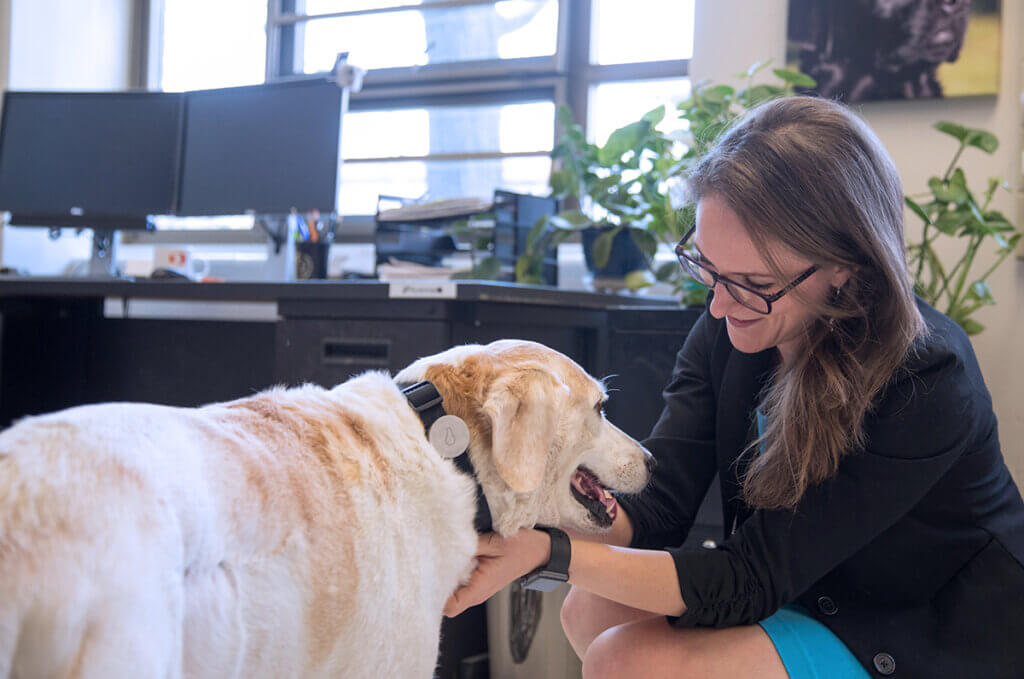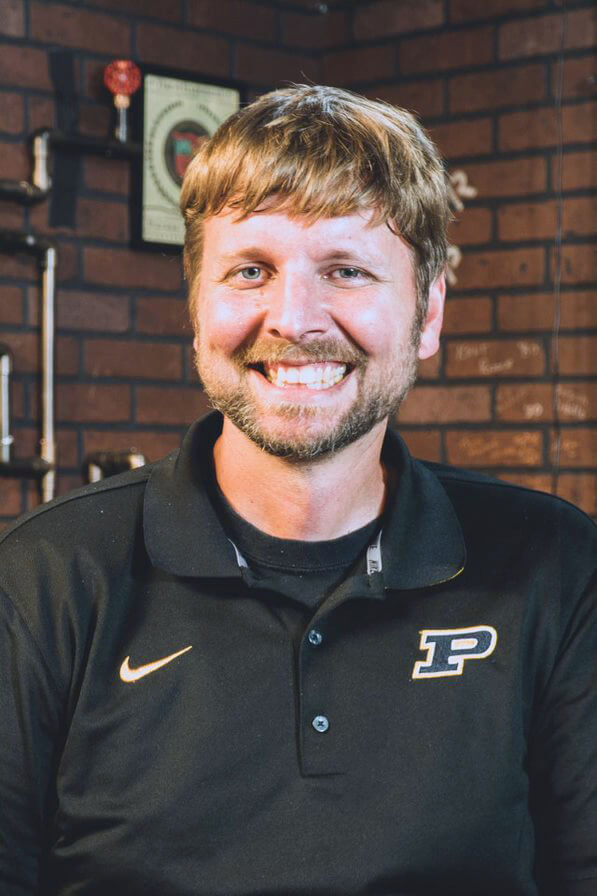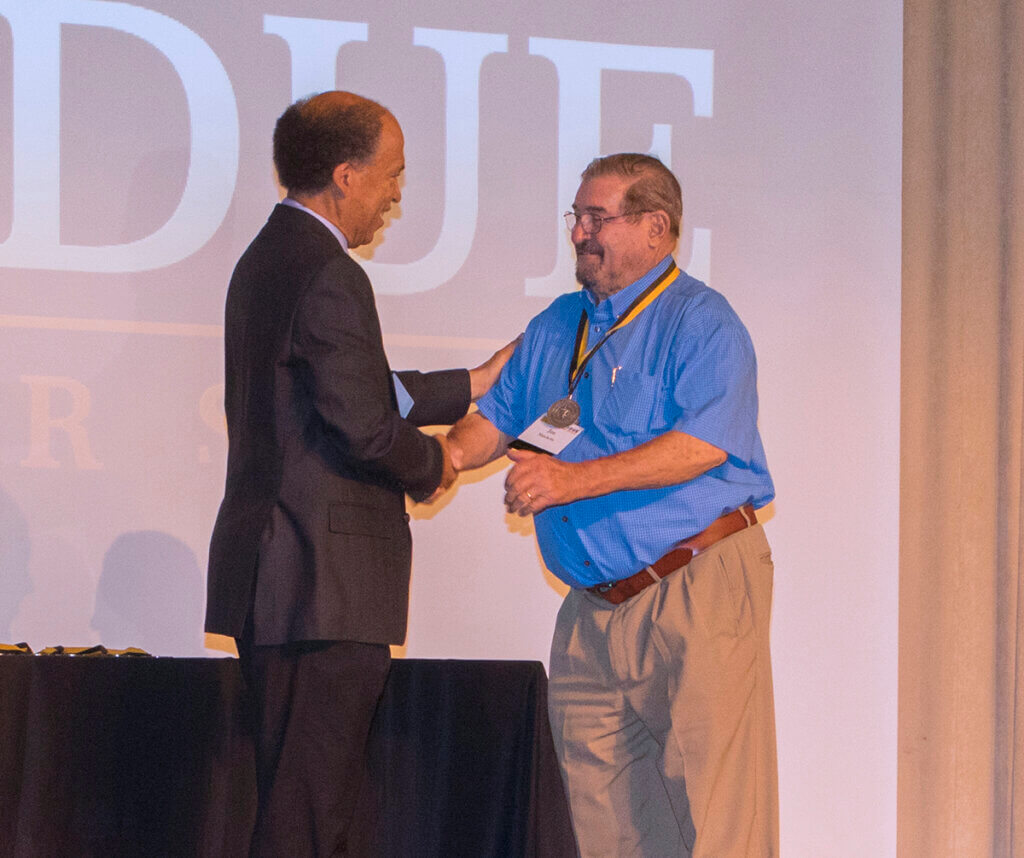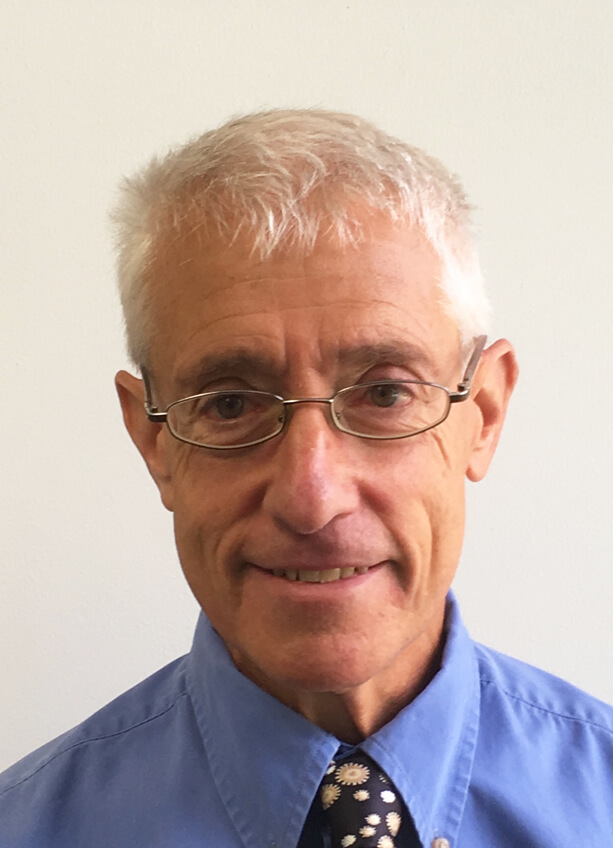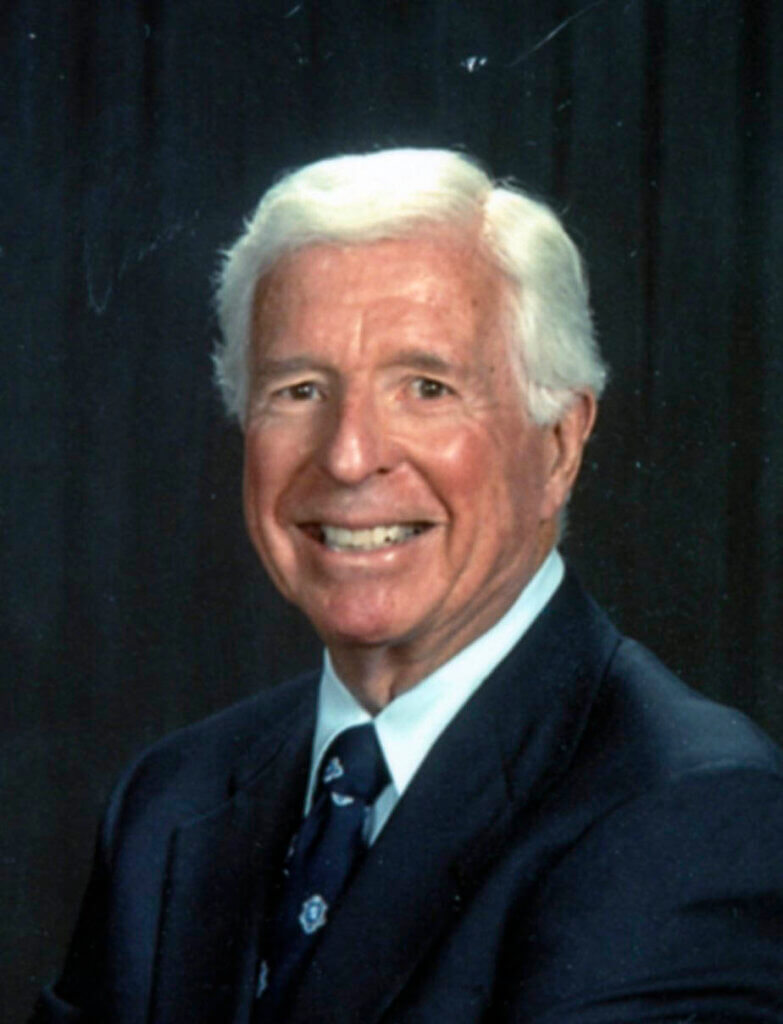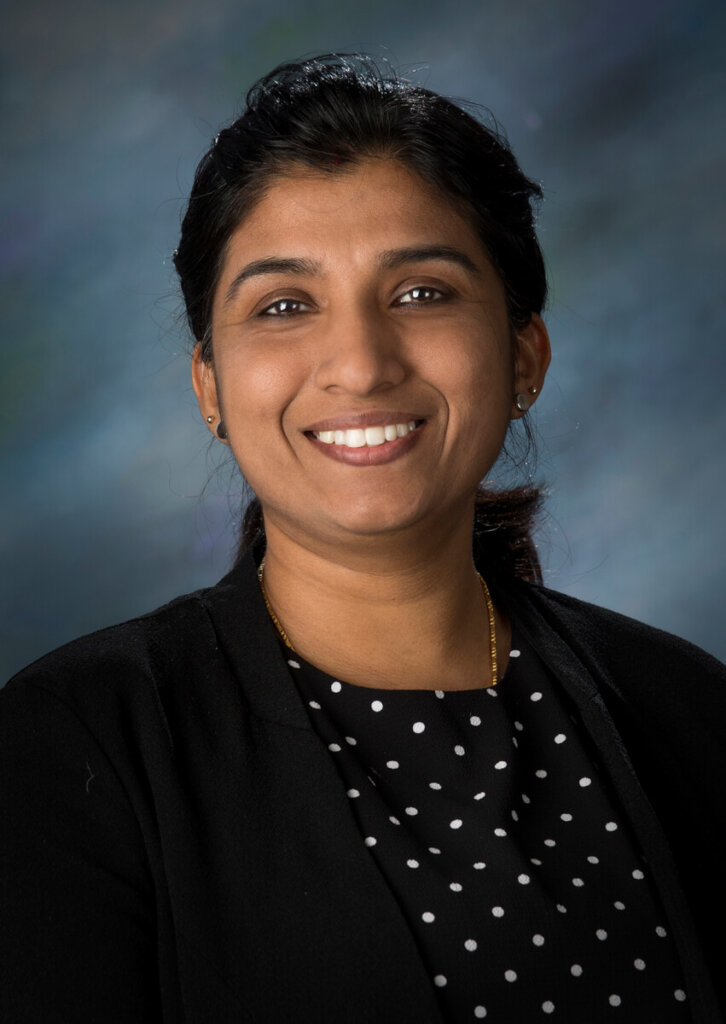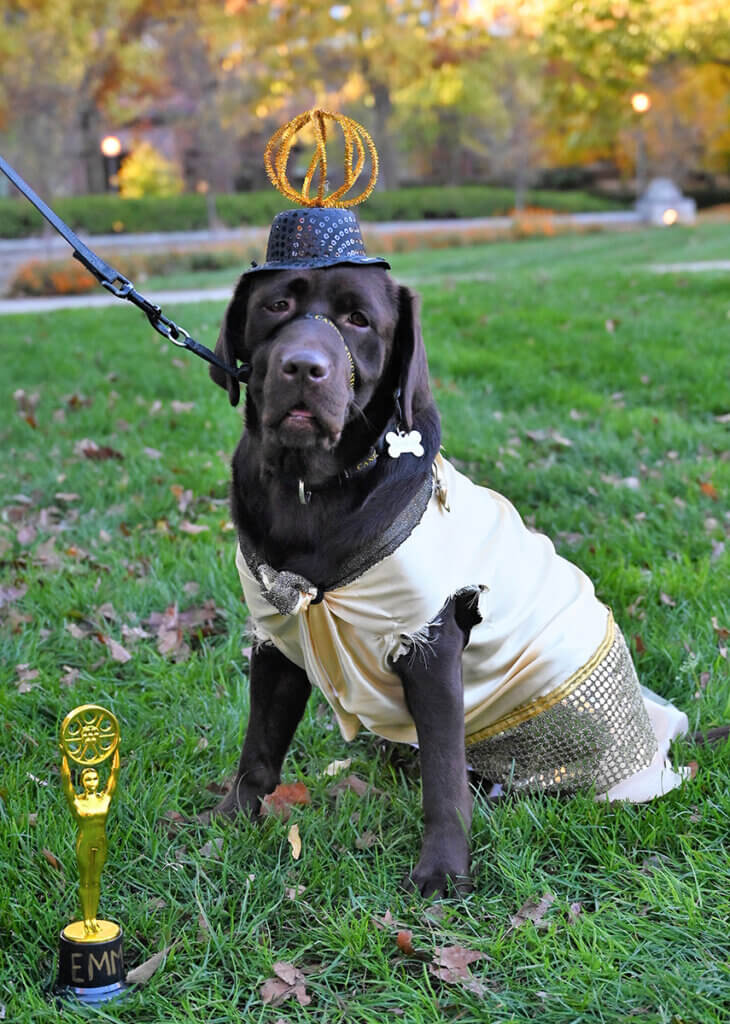Month: November 2020
Celebrating the Career of a Vet Tech Veteran
November 20, 2020
Faculty and staff in the Purdue University College of Veterinary Medicine bid adieu to a very familiar figure in the Veterinary Hospital’s Large Animal Hospital during a virtual retirement reception honoring longtime Chief Large Animal Technologist Pat Navarre, RVT. The Zoom reception celebrating Pat’s retirement and enduring legacy was held on his last day on the job, Friday, November 13, 44 years after he started his Purdue Veterinary Medicine career.
Three PVM Faculty among New Showalter Trust Recipients
November 20, 2020
More than a dozen mid- and early-career Purdue University faculty members, including three in the College of Veterinary Medicine, have been chosen to receive funding from the Ralph W. and Grace M. Showalter Research Trust Fund. Dr. Maggie O’Haire, Dr. Andrea Santos, and Dr. Uma Aryal, all in the Department of Comparative Pathobiology, are among a total of 15 faculty members selected as Showalter Trust recipients.
New Director Joins Engagement Team to “Shepherd” PVM Lifelong Learning
November 20, 2020
The College of Veterinary Medicine is proud to welcome Ben Shepard, MS as the new director of lifelong learning. Though his last name is spelled slightly different, Ben is excited to have the opportunity to “shepherd” the college’s continuing education programs. He started in the position November 9, after working for the past 15 years at multiple universities in various student affairs positions focused on residential life and university housing, as well as student leadership and other opportunities for students who live in residence halls.
In Memory: Dr. James Matchette (PU DVM ’67)
November 20, 2020
A decorated alumnus of the Purdue University College of Veterinary Medicine, Dr. James Matchette, Col (USAF Reserves), passed away November 8. He was 84.
COVID-19 is Not the First of its Kind
November 13, 2020
The relevance of this year’s topic for the Coppoc One Health Lecture was never in question. The annual Purdue University College of Veterinary Medicine event, held virtually this year, featured a presentation entitled, “Immune Responses in, and Animal Models for, Covid-19.”
In Memory: Dr. Lewis J. Runnels, Professor Emeritus
November 13, 2020
The Purdue Veterinary Medicine family received sad news this week regarding Dr. Lewis J. Runnels, professor emeritus of comparative pathobiology, who passed away Sunday, November 8 at Westminster Village Health Care in West Lafayette, Ind. He was 95.
Purdue Veterinary Nurses Among First to Obtain Specialty Certification in Diagnostic Imaging
November 13, 2020
The addition of Diagnostic Imaging as a recognized Veterinary Technician Specialty created an opportunity that two veterinary nurses in the Purdue University Veterinary Hospital quickly opted to pursue. Now Christy DeYoung, RVT, VTS-DI and Lydia Trott, RVT, VTS-DI are among the first in the veterinary medical profession to obtain the designation of Veterinary Technician Specialist in the field of veterinary diagnostic imaging (VTS-DI).
Dr. Deepti Pillai Named as a 2020-21 Scholarship of Engagement Fellow
November 6, 2020
Purdue University’s Office of Engagement has announced the 2020-21 Scholarship of Engagement fellows – a list which includes Dr. Deepti Pillai, clinical assistant professor of diagnostic microbiology in the Department of Comparative Pathobiology. Dr. Pillai is one of a total of 14 faculty members in either clinical or tenure tracks from Purdue’s West Lafayette, Northwest, and Fort Wayne campuses selected for the program.
Results Are in for the Cutest Canine Halloween Costumes!
November 6, 2020
The votes were cast and the final count is in for Purdue Veterinary Medicine’s Halloween Canine Educators Costume Contest!
In Memory: Farrier James Kenneth Keith, Jr.
November 6, 2020
The Purdue Veterinary Medicine family is saddened to learn that farrier James Keith, Jr., of Wingate, Ind., who provided services to the College of Veterinary Medicine, passed away Friday, October 30, after a lengthy illness. He was 74.


